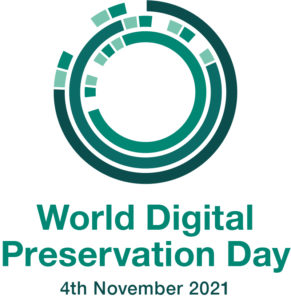Second Edition of the Guidelines for the Selection of Digital Heritage Featured in International Conference on Digital Preservation
04 November 2021

The theme for this year’s World Digital Preservation Day (4 November) is: ’Breaking Down Barriers’.
In the words of the Digital Preservation Coalition (DPC), this presents “an opportunity to demonstrate how digital preservation supports digital connections, unlocks potential and creates lasting value”. Though this, the DPC calls for a worldwide effort to make digital preservation understandable, relatable, and accessible to all.
As firm believers in access to information and knowledge, IFLA echoes this call. We advocate for digital preservation policies to be established that are conducive for libraries and other memory institutions to fulfill their mission of preserving and providing access to digital heritage. As libraries are mandated to serve their communities’ needs, being able to provide for long-term accessibility and use of this material is essential.
One way that IFLA has contributed to building capacity for digital preservation is through participation in the UNESCO PERSIST Content Task Force, and especially through the editing and promotion of the Guidelines for the Selection of Digital Heritage for Long-term Preservation.
The Second Edition
The PERSIST Content Task Force, under the Preservation Subcommittee of UNESCO Memory of the World, launched the Second Edition of the UNESCO PERSIST Guidelines for the Selection of Digital Heritage for Long-term Preservation in September 2021.
An international writing group of experts representing a range of memory institutions strived to make this edition even more practical for those working in digital preservation. The Guidelines offer a framework that communicates key concepts and tools that practitioners might consider in their own context. It also offers several appendices to allow for a deeper dive into specific types of digital content.
IFLA at the International Conference on Digital Preservation
With this strengthened practical focus, the Writing Group moved to begin re-introducing the Guidelines to professionals in memory institutions.
One step in this direction was the delivery of the workshop: “Guidelines for the Selection of Digital Heritage for Long-Term Preservation: What, Why, When”, which was offered during the 17th International Conference on Digital Preservation (iPRES) in Beijing, China on 19 October. Members of the Writing Group conducted this 90-minute, interactive workshop for an international audience joining both virtually and in-person during this hybrid event.
The Workshop
The objective was to encourage attendees to put the Guidelines to use, both in articulating selection decisions as well as to advocate for the value of preserving digital heritage.
The workshop featured video addresses by Ingrid Parent, chair of the Writing Group and past IFLA President, and Anthea Seles, Secretary General of the International Council on Archives (ICA) and writing group expert member. Both spoke to the hope that the guidelines would be practically applicable to a range of memory institution professionals in their work.
Facilitators Claire McGuire (IFLA Headquarters and Secretary of the Writing Group) and Jenna Murdock Smith (Lead Archivist, Archives Branch, Library and Archives Canada and Writing Group expert member) provided a deeper look at the Selection Criteria – significance, availability, and sustainability.
By guiding attendees through an interactive exercise that introduced the Guidelines’ Decision Tree, the facilitators sparked a discussion on key considerations and questions that might affect the decision to select material for long-term preservation.
In line with the theme for this year’s World Digital Preservation Day, the discussion portion of the workshop led to a dialogue on possibilities for collaborative acquisitions, working together with other heritage institutions on acquisition and preservation of digital collections.
Find the 2nd Edition of the UNESCO PERSIST Guidelines for the Selection of Digital Heritage for Long-term Preservation below.
The UNESCO/PERSIST Guidelines for the Selection of Digital Heritage for Long-Term Preservation - 2nd Edition
The 2nd Edition of the UNESCO/PERSIST Guidelines for the Selection of Digital Heritage for Long-Term Preservation seeks to continue helping practitioners and decision-makers in memory institutions make informed choices regarding what digital resources to preserve for long-term access. The PERSIST Co...
Directrices UNESCO/PERSIST sobre selección del patrimonio digital para su conservación a largo plazo - 2nd edición
Spanish translation - the UNESCO/PERSIST Guidelines for the Selection of Digital Heritage for Long-Term Preservation - 2nd Edition. Translation made possible through the generous support of UNESCO
برنامج اليونسكو لتعزيز استدامة مجتمع المعلومات على الصعيد العالمي (اليونسكو/بيرسيست) المبادئ التوجيهية لانتقاء التراث الرقمي للصون الطويل الأجل
Arabic translation of the UNESCO/PERSIST Guidelines for the Selection of Digital Heritage for Long-Term Preservation - 2nd Edition. Translation made possible through the generous support of UNESCO.